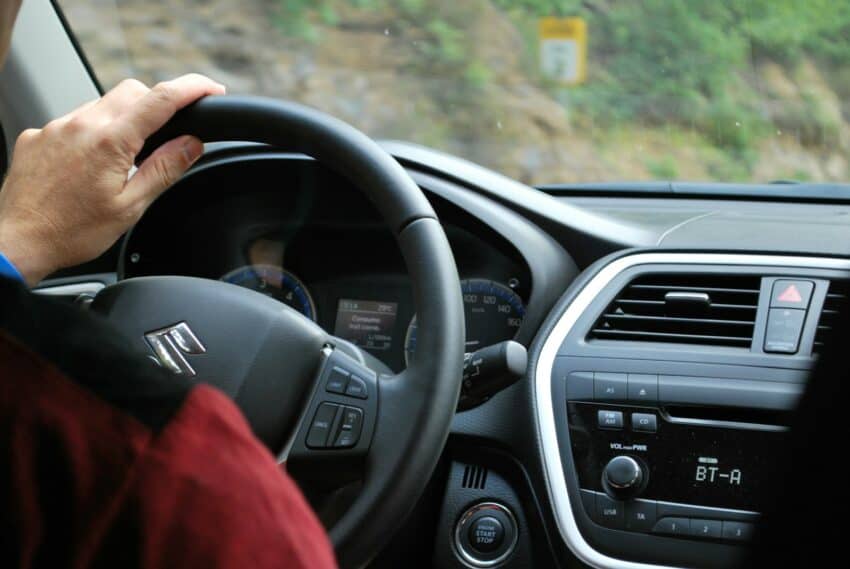Car accidents are more than just collisions of metal and glass; the sudden disruption can leave lasting imprints on both your physical well-being and your finances. Apart from recovering from the immediate impact, the aftermath often involves addressing the lingering scars that extend beyond the visible.
In this blog, we are going to talk about healing—both physically and financially—after a car accident.

Grappling with Physical Injuries
The moments immediately following a car accident are a whirlwind of shock, adrenaline, and, often, pain. As you grapple with the immediate aftermath, you must first tend to your physical injuries as the top priority. Whether it’s aches and pains or more severe injuries, seeking prompt medical attention is crucial. Your health is paramount, and addressing injuries early on lays the foundation for a smoother recovery.
It’s okay not to feel okay, and reaching out for medical support is an essential step in the healing process. From the persistent neck pain to the unexpected anxiety that might surface while driving again, these are all part of the healing journey.

The Financial Impact: From Medical Bills to Car Repairs
Once the initial shock begins to fade, the reality of the financial aftermath sets in. Medical bills start piling up, car repairs become a necessity, and the prospect of time off work due to injuries adds another layer of stress. In this scenario, let’s talk about financial healing with empathy and understanding.
First and foremost, it’s important to document everything. Keep a record of medical bills, repair estimates, and any other expenses related to the accident. This not only helps you stay organized but also provides a comprehensive picture when dealing with insurance claims.
Speaking of insurance claims, depending on the laws in your state, you may have the right to file a personal injury lawsuit against the other driver if you believe your injuries were a result of their negligence. Personal injury attorneys like Herrman & Herrman handle such cases, and they’ll help establish your claim and recover compensation to cover your expenses, even the lost wages you missed out on due to the injuries.
Understanding Insurance: More Than Just Paperwork
If your state is an at-fault state, there may be no grounds to file a lawsuit against the driver, whether or not they were at fault. In this case, either your insurance company or theirs will be responsible for covering your losses. At any rate, you’ll want to have a lawyer by your side when dealing with insurance companies as well.
Covering your financial losses is a crucial resource in your journey toward healing. You’ll need as much help as you can get this time, and you do not want to run into debt on medical bills due to an injury that was probably someone else’s fault. So don’t even think about letting it slide.
Remember that insurance companies are not faceless entities, so open communication is important here. Detail your experience, provide documentation, and express your concerns.
Navigating Anxiety and Stress
Beyond the physical injuries and financial strain, the aftermath of a car accident can leave a lasting impact on mental well-being, often manifesting as PTSD and anxiety. Anxiety about getting back behind the wheel, the stress of dealing with insurance companies, and the overall impact on your mental well-being deserve acknowledgment.
Coping with these emotional scars requires a multifaceted approach. Try to engage in open conversations with friends and family, as this can provide a crucial support system, offering understanding and empathy. You may also choose to seek professional mental health support, whether through therapy or counseling, which offers a structured space to explore and process the trauma.
Additionally, you can connect with your emotions and gradually build resilience by taking the time for personal reflection. It’s vital to recognize that healing is a journey, and finding a combination of coping mechanisms that works for you is key to reclaiming a sense of well-being after a challenging experience on the road.
Conclusion: Your Journey to Healing
As we wrap it up about healing after a car accident, it’s worth emphasizing that the journey is uniquely yours. Healing is not a linear path; it’s a series of conversations with yourself, with your healthcare providers, with your insurer, and potentially with legal professionals.
Concluding our discussion with an encouraging tone, remember that you are not alone in this journey. Whether facing physical injuries, financial strain, or the emotional aftermath, support is readily available. Healing is a gradual process, and as we move forward, let’s face it collectively—with a deep understanding, shared support, and the assurance that brighter days are on the horizon.


